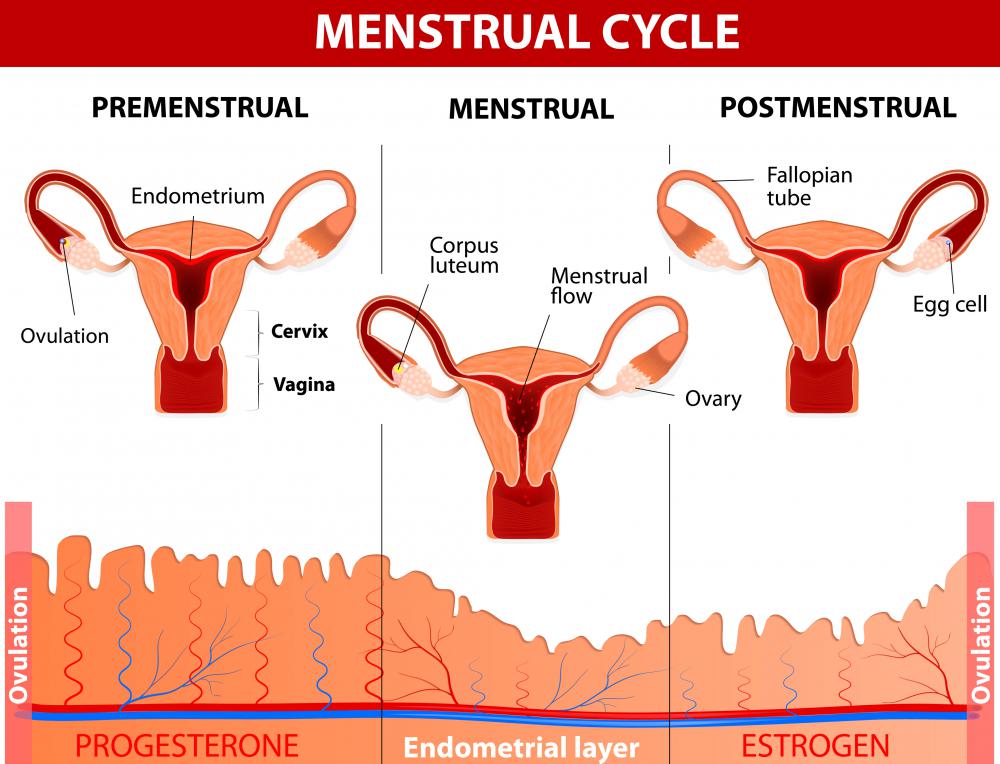At WiseGEEK, we're committed to delivering accurate, trustworthy information. Our expert-authored content is rigorously fact-checked and sourced from credible authorities. Discover how we uphold the highest standards in providing you with reliable knowledge.
What Factors Affect my Chances of Getting Pregnant?
A woman's chances of getting pregnant may be increased or reduced by a number of factors. Maintaining good health and making wise lifestyle choices can improve the likelihood of having a baby. Allowing infections to go untreated and attempting to conceive with a man who has fertility issues can make conception difficult, if not impossible.
Many people think that the more you have sex the better your chances of conception. To some extent this may be true because you are more likely to have sex at the right time. Timing is more important than frequency because getting pregnant involves fertilizing an egg. The point during which a fertile egg is available for this to happen is known as ovulation, which occurs at a specific time during the month. Since it is important to have intercourse during or near the time of ovulation, it is often beneficial to use fertility tests.

There are a number of lifestyle factors that can decrease a woman's chance of conceiving. For example, if either partner smokes, it may be more difficult for a woman to get pregnant. The use of recreational drugs can also have a negative impact. Nutrition plays an important role in improving a woman's chances of having a baby. Women who are malnourished have more difficulty getting pregnant than those maintain a healthy diet.

Your medical history can affect your chances of getting pregnant. If you contracted certain sexually transmitted diseases in the past or are currently infected, it may be difficult for you to conceive. This problem also arises from damage caused by infections that are not treated promptly enough and by procedures, such as abortions, which may have caused trauma to your organs. Birth control may also reduce your chances of conception for a while. Although you may have stopped your course of treatment when you decided to conceive, it is possible that the effects may linger.

Age commonly impacts fertility. Once you reach 35, your chances of conception begin to drop. The older you get, the more your chances of getting pregnant tend to decrease. Your genetics may also have an effect on your efforts. Women whose mothers and grandmothers were highly fertile may become pregnant much easier and more often than women whose predecessors had difficulty conceiving.
When women are trying to get pregnant but are unsuccessful, they often begin to speculate that there is something wrong with them or something they are not doing right. If this sounds like you, it is important to remember that your partner also affects your chances of getting pregnant. Women are not the only ones to have fertility problems. Some men cannot produce children and others can only do so with a great deal of difficulty.
AS FEATURED ON:
AS FEATURED ON:













Discussion Comments
@Mor - Basically you want to be healthy if you want to get pregnant. Healthy and as stress-free as possible. Women should also bear in mind that it can take up to a year to become fertile again after stopping regular birth control medication, so don't panic if that happens.
I know it's difficult to remember when you are eager for something to happen but unless you've got a specific problem to deal with, you will increase the chances of getting pregnant by relaxing and not worrying too much about it.
I also want to point out that carrying a pregnancy is not the only way to increase a family. There are a lot of babies and children out there who need homes and will be just as precious to you as children who happen to share your genes.
@clintflint - Not everyone with PCOS could be considered overweight and I'm sure that your chances of conceiving won't go up if you are already a normal weight and you lose some.
In fact, it will probably go down. Women need some body fat in order to get pregnant. They will stop being fertile if they get below a certain percentage and chances of a miscarriage will increase as well.
If you have polycystic ovarian syndrome (and around ten percent of women have it) then your chances of conceiving will go up if you can keep your weight down. I'm not really in favor of people dieting too much because yo-yo diets are worse for your health than staying the weight you are naturally, but it's been shown in studies that if you have PCOS the chances of getting pregnant increase with the amount of weight you lose.
I would also talk to a specialist about it, because there are other steps that can be taken, including surgical ones if it comes to that. But they will almost certainly encourage you to try weight loss first if that seems like it could help.
Post your comments